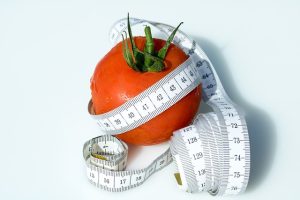
Eating healthy is an important part of achieving your health goals. But with so many different diets and nutrition plans out there, it can be hard to know what to eat and how to make sure you’re getting the right nutrients. That’s why it’s important to have some basic nutritional guidelines to help you make the right choices. Here are five nutritional guidelines to help you reach your health goals.
1. Eat a Variety of Foods
Eating a variety of foods is important for getting all the nutrients your body needs. Try to include a variety of fruits, vegetables, whole grains, lean proteins, and healthy fats in your diet. Eating a variety of foods will also help you avoid getting bored with your meals and snacks.
2. Choose Whole Foods
Whole foods are foods that are in their natural state and haven’t been processed or refined. Examples of whole foods include fruits, vegetables, whole grains, nuts, and seeds. Eating whole foods is a great way to get the most nutrition out of your meals.
3. Limit Processed Foods
Processed foods are foods that have been altered from their natural state. Examples of processed foods include white bread, chips, and candy. These foods are often high in calories, sugar, and unhealthy fats, and they don’t provide much nutrition. Try to limit your intake of processed foods and focus on eating whole foods instead.
4. Watch Your Portion Sizes
Portion sizes are important when it comes to eating healthy. Eating too much of any food can lead to weight gain and other health problems. Try to stick to the recommended portion sizes for each food group and don’t go overboard.
5. Drink Plenty of Water
Water is essential for good health. It helps to keep your body hydrated and can help you feel full so you don’t overeat. Aim to drink at least 8 glasses of water a day.
How-To Incorporate These Guidelines Into Your Diet
Now that you know the five nutritional guidelines, it’s time to put them into practice. Here are some tips for incorporating these guidelines into your diet:
- Make sure to include a variety of foods in your meals and snacks. Try to include a fruit or vegetable, a whole grain, a lean protein, and a healthy fat.
- Choose whole foods whenever possible. Look for foods that are in their natural state and haven’t been processed or refined.
- Limit your intake of processed foods. These foods are often high in calories, sugar, and unhealthy fats.
- Pay attention to portion sizes. Stick to the recommended portion sizes for each food group.
- Drink plenty of water. Aim to drink at least 8 glasses of water a day.
Advice for Reaching Your Health Goals
Eating healthy is an important part of reaching your health goals. Here are some tips for making sure you’re on the right track:
- Plan ahead. Planning your meals and snacks ahead of time can help you make sure you’re eating the right foods.
- Eat slowly. Eating slowly can help you feel full faster and prevent overeating.
- Be mindful. Pay attention to how you’re feeling when you’re eating. Are you really hungry or just bored?
- Get enough sleep. Getting enough sleep is important for maintaining a healthy weight and keeping your energy levels up.
- Exercise regularly. Exercise can help you reach your health goals by burning calories and improving your overall health.
Conclusion
Eating healthy is an important part of reaching your health goals. Following the five nutritional guidelines outlined above can help you make sure you’re getting the right nutrients and staying on track. Remember to plan ahead, eat slowly, be mindful, get enough sleep, and exercise regularly. With these tips, you’ll be well on your way to reaching your health goals.
#ChatGPT assisted in the creation of this article.





